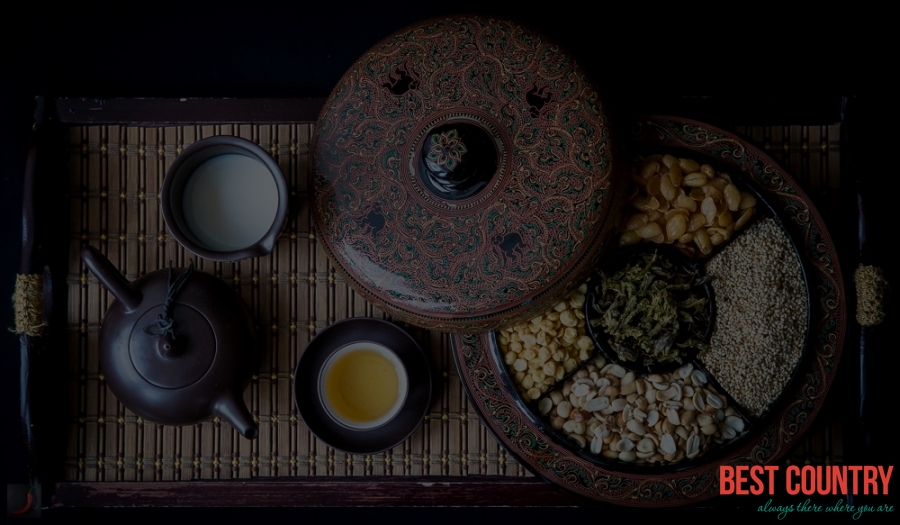Fruit drinks are plentiful and delicious. Sometimes they are mixed with salt and served in plastic bags.
Non-Alcoholic Drinks in Myanmar
Squeezed sugar cane juice and fresh coconut water are also widely available and good. Fresh coconuts are refreshing and hygienic. Drink it with a straw straight from the coconut. Sugar cane juice is squeezed from a metal press.
 The Burmese are big tea drinkers, but many foreigners consider fragrant black Burmese tea to be too strong, sweet and milky. Soft drinks such as Coke, Pepsi, Orange Crush and Fanta have recently become available. Burmese soft drinks are an acquired taste. The coastal areas serve toddy (palm sap) drinks.
The Burmese are big tea drinkers, but many foreigners consider fragrant black Burmese tea to be too strong, sweet and milky. Soft drinks such as Coke, Pepsi, Orange Crush and Fanta have recently become available. Burmese soft drinks are an acquired taste. The coastal areas serve toddy (palm sap) drinks.
Tap water in Myanmar is not safe to drink, likewise ice may be contaminated. Restaurants sometimes have poor sanitation and do not necessarily wash the cups properly.
Bottled water is readily available at many tourist sites. As of August 2012, the standard going rate for a one bottle of mineral water was is 30 0ks. Golden Mountain is a popular brand of bottled water.
Myanmar soft-drink-maker Pinya's 10-product line is marketed under the brand name Max. Most of the company's ingredients are imported from Germany and the United States.
Paul Theroux wrote in “The Great Railway Bazaar”: On every landing there is a temple, a soft-drink stall ("Dagon Pure Orange—Bottled in Rangoon With Distilled Water"), and a sugar-water machine which squeezes split canes in a contraption that resembles an old laundry wringer.
Halfway up the hill I stopped, had a Super Soda, and examined some statuary in wire cages, life-sized plaster figures, brightly painted and horrific as a Tiger Balm ointment tableau: a supine figure sticking his tongue out at a crow perched on his chest and tearing bright blue intestinal coils, yards of shiny hose, from a gaping hole in the man's belly; another satisfied man with a cutlass, squatting next to a disemboweled deer.
I slipped a coin into a cast-iron machine, and three figures in a window were set into motion: a clockwork man swept a path with a wire broom, a clockwork saffron-robed monk shuffled on the path, and a clockwork devotee raised and lowered his clasped hands to the monk.
Tea in Myanmar
In Myanmar everyone—young and old, male and or female, lay people and monks—drinks tea. Drinking tea without milk and sugar is the usual custom throughout Myanmar. A lot of tea in Myanmar is produced in Palaung and Shan ethnic areas.
Tea is served at every social or religious ceremony or function. In every household there is at least one member of the family who likes to have a cup of plain tea as soon as she or he gets up from bed.
The first duty of the house wife when she gets up is to boil water and prepare a pot of tea, not only for the grandfather, grandmother, father or husband, but for herself and her children. Guests who comes for a visit are offered a cup of plain tea.
Tea shops are found in every city, town, and large village. They are important social gathering places mostly for men. Tea shops are crowded with people young and old alike. Holding a cup of plain tea and slowly sipping it is regarded as a relaxing activity. People often do their business in roadside tea shops.
Tea serves many purposes: social, economic and religious. Tea is such a popular drink in Myanmar tea drinkers like to boast “I don ' t drink water the whole day.”
Ben wrote on his blog Chowtime.com: Tea from the Shan state “is strong, really strong and is served with condensed milk and sugar. You know, I can’t drink coffee or tea after 3PM everyday. If I do, I can’t sleep. Here I am being presented a super strong tea at about 9PM. I had to drink it. That night, I slept at 4AM. Suanne can’t sleep too.
On the Yenwejan tea often served at restaurants, one traveler to Myanmar wrote: “Similar to Chinese tea, Yenwejan is usually provided free at restaurant tables. While not flavorful, it is boiled water, and so safe to drink. Dried tea leaves similar to Laphet thote's tea leaves (except these are wet) are added to the boiled water to give Yenwejan flavor.
Be sure to order it with Laphet thote (Customary/Good combination). Myanmar's rich and creamy milk tea (very similar to that you find in India or southeast Asia) is an absolute must. This is normally to be had at cafes rather than restaurants (you'll see them packed full of people drinking milk tea).
Milk tea is often served with samosas and other condiments which you will be charged for if you eat, and passed on to others if you do not eat them.